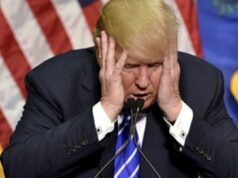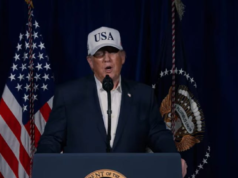Throughout his administration, Andrés Manuel López Obrador (AMLO) has painted a bleak picture across many key aspects of his government. His promises of a «Fourth Transformation» aimed at ending corruption, violence, and economic issues have not only gone unfulfilled but have plunged Mexico into an unprecedented crisis.
Today, in light of the results, López Obrador is seen by many as a narcopresident who neither listened to nor addressed the concerns raised by northern neighbors like the United States on critical issues such as security, border control, immigration, and drug trafficking.
Security and Violence: The Bloodiest Six-Year Term
One of López Obrador’s greatest failures has been his security policy, marked by escalating violence that has made his term the bloodiest in modern Mexican history.
It is estimated that under his rule, more than 200,000 people have been murdered, making his administration one of the deadliest since 1976. AMLO’s «hugs, not bullets» strategy, promoted early in his tenure, was seen as a way to avoid direct confrontation with organized crime.
Watch:
However, far from reducing violence, this policy allowed the cartels to strengthen their territorial control. Warnings from the United States about the growing influence of the cartels at the southern border and the lack of cooperation in the fight against drugs were ignored by AMLO, who stood firm in his sovereignty-focused rhetoric, rejecting intervention in security matters.
Between January and June 2023, Mexico recorded 15,082 homicides, according to preliminary data recently released by the National Institute of Statistics and Geography (INEGI).
With these numbers, Andrés Manuel López Obrador’s government has accumulated 160,594 homicides in his first four and a half years in office, surpassing the record set by Enrique Peña Nieto. According to INEGI records, 156,066 homicides were reported during Peña Nieto’s administration.
The number of homicides recorded during Peña Nieto’s term had been the highest since INEGI began keeping these records in 1990.
With 15,082 homicides reported in the first six months of 2023, López Obrador’s government has surpassed Peña Nieto’s total by over 4,000 murders, and his term still has a year and a half to go.
Although the data is still preliminary and could be adjusted in the coming months, López Obrador’s administration has already set a homicide record.
INEGI data also reveals that previous administrations recorded the following homicide numbers:
- Ernesto Zedillo (1994-2000): 80,671
- Vicente Fox (2000-2006): 60,280
- Felipe Calderón (2006-2012): 120,463
Additionally, the Executive Secretariat of the National Public Security System (SESNSP) had already reported an increase in homicides during López Obrador’s administration. Between December 2018 and October 2023, 161,527 victims of intentional homicides were recorded, representing a 17.65% increase compared to the 137,286 homicides registered during Peña Nieto’s term.
According to the latest SESNSP data, by December 2023, the total number of intentional homicides under López Obrador’s government reached 166,193, marking a 21% increase compared to Peña Nieto’s six-year term.

Drug Trafficking and Relations with the United States
López Obrador’s disregard for U.S. warnings about drug trafficking, especially fentanyl, which has wreaked havoc in the neighboring country, has generated considerable diplomatic tensions. Washington has repeatedly stated that Mexico has not done enough to curb drug trafficking, particularly the flow of fentanyl northward.
However, instead of taking decisive action, AMLO has responded with nationalist rhetoric, claiming that Mexico is not a fentanyl producer despite evidence of clandestine labs on Mexican soil. This attitude has eroded trust between the two countries on a critical issue of security and public health.
In his famous mañaneras (morning press conferences), AMLO denied any link with drug trafficking, accusing others of «slandering» him.
On February 22, 2024, The New York Times published an article in Spanish covering an investigation in Mexico regarding drug trafficking and its ties to Andrés Manuel López Obrador’s administration.
The report highlights an investigation into the possible connection between AMLO’s government and drug trafficking. Despite the administration’s claims of commitment to fighting organized crime, the investigation suggests that high-ranking officials may have been involved in illegal activities related to drug trafficking.
Evidence of corruption and complicity has surfaced, indicating that certain government members may have facilitated drug trafficking operations in exchange for political or financial favors.


The investigation also suggests that AMLO’s policies have contributed to increased impunity for criminal groups. Despite promises to fight crime and improve security, the administration has faced criticism for its lack of effective action and for pursuing policies that have failed to resolve Mexico’s issues with violence and corruption.
The article concludes by highlighting the growing public and political pressure on the president to take more concrete and transparent measures in the fight against drug trafficking and corruption within his administration.
Peace Strategy: «Hugs, Not Bullets»
Andrés Manuel López Obrador’s security strategy has been entirely inconsistent between his rhetoric and actions. AMLO promised a peace-focused policy but, in practice, his government increased the militarization of public security, primarily through the creation of the National Guard.
This approach has not only perpetuated violence but has also weakened civilian institutions. Critics argue that militarization, far from solving structural security problems, has worsened the crisis, reflecting a lack of clear vision for strengthening the rule of law.
Despite his pledge to move away from confrontational policies, AMLO has fallen into the same mistakes as previous governments, resulting in increased violence. His approach has diverted resources and attention from more effective solutions, such as investment in civilian institutions and the strengthening of the judicial system.
Militarization, far from offering a solution, has deepened insecurity and been seen as a sign of the government’s inability to deliver on its peace promises.
Meanwhile, in Mexico:


Suspension of In-person Activities
Culiacán, Sinaloa, September 15, 2024.
Dear Sinaloa Campus Community,
Due to ongoing violence in the city, we inform you that from Tuesday, September 17 to Saturday, September 21:
Academic classes for PrepaTec, professional, and language center will continue remotely.
LiFE events and activities are suspended.
On-site services and support are suspended, TECservices will operate through digital channels:
Chat, WhatsApp, Email, Phone, TECbot.
«Don’t go to school because you might get killed.»
It’s unbelievable…
Corruption: An Empty Promise
One of the main pillars of López Obrador’s campaign was the promise to end corruption. However, by the end of his term, corruption remains a systemic issue in Mexico.
During Andrés Manuel López Obrador’s six-year term, corruption in Mexico reached alarming levels, with misappropriations exceeding 26 billion pesos.
According to the report from Mexicanos Contra la Corrupción y la Impunidad (MCCI), in 16 analyzed corruption cases, only 40% of those involved have been investigated or prosecuted, while the remaining 60% remain unaccountable. Out of the 85 people prosecuted, only eight have undergone the full legal process. The resolution of these cases shows minimal progress, with an average of just 25%, reflecting persistent impunity.
The report also notes that while some cases from Enrique Peña Nieto’s term are still ongoing, the current government has not shown significant progress in the fight against corruption.
Despite AMLO’s repeated claims that «corruption is over,» scandals have continued to mar his administration and those close to him.
The people of Mexico speak in the polls:


AMLO has been criticized for shielding individuals in his inner circle, while the Attorney General’s Office has been accused of selectively targeting political opponents.
The clearest example is his brother, Pío López Obrador, who was caught on video receiving cash, a case that was never thoroughly investigated.
Despite his speeches on integrity and honesty, the perception of corruption in Mexico has remained largely unchanged.


Economy: The Worst Performance Since 1976
In the economic sphere, López Obrador’s promises have also fallen short. Upon taking office, AMLO promised that Mexico would grow by 6% annually and achieve energy and food self-sufficiency.
However, the reality has been quite different. Under his leadership, economic growth has been virtually nonexistent, with the worst performance since 1976. The COVID-19 pandemic exacerbated the situation, but even before it, AMLO’s economic policies—characterized by the cancellation of key projects like the Texcoco airport and uncertainty for private investment—had already weakened the economy.
During the first six months of Andrés Manuel López Obrador’s term, Mexico’s economy faced serious challenges. Despite his promises of growth and prosperity, AMLO’s administration saw stagnation in foreign investment and a slowdown in economic growth.
The government’s economic policies, including changes in the energy sector and the cancellation of major infrastructure projects like the Texcoco airport, created uncertainty among investors and hurt market confidence. This unstable environment contributed to slower economic activity and a bleak outlook for the country’s development.
Furthermore, the Mexican economy has struggled with rising unemployment and persistent inflation, which has negatively impacted citizens’ purchasing power. The lack of clear and effective strategies to address these economic issues has worsened the situation, showing an economic management that has yet to meet the expectations of growth and stability promised by the president.
Energy and food self-sufficiency, which were priorities in his speeches, were never achieved. Mexico remains heavily reliant on food and fuel imports, and the state oil company PEMEX continues to face precarious financial conditions. Additionally, the country’s fiscal deficit has grown, creating a ticking time bomb that the next government will have to defuse.


Pharaonic and Unproductive Projects
Another aspect of AMLO’s legacy is his obsession with large infrastructure projects, which have been widely criticized for their lack of economic and social viability. The three main projects of his administration—Dos Bocas refinery, Felipe Ángeles International Airport (AIFA), and the Maya Train—have been described as unnecessary and costly, not only consuming vast amounts of public resources but also facing enormous viability issues.
AIFA, for example, has struggled to attract commercial flights and continues to operate well below its capacity.
Something only a Mexican could understand, we laugh at our own misfortune:
Dos Bocas, on the other hand, has cost much more than anticipated, and experts doubt it will make Mexico self-sufficient in fuel production.
¡¡¡Unbelievable!!! In the September 16th parade…
Was it a parade celebrating Mexico’s independence? Or a parade of failures?
Human Rights: Journalists and Searching Mothers Ignored
AMLO’s administration will also be remembered as one of the most dangerous for the press. Mexico has solidified its position as one of the most dangerous countries to practice journalism, with dozens of journalists murdered during his term.
Despite constant complaints from international organizations, López Obrador has opted to disqualify critical press, calling them «fifí press» or «conservative.»
El Economista reported on the issue:
In the last five years, Mexico has witnessed a growing threat to freedom of expression under AMLO’s indifferent administration, which boasts of being humanitarian. This is a regime that considers itself leftist but is insensitive to attacks on journalists, while it is active in discrediting adversarial media and the press.
This hostility toward the media has created a climate of fear and intimidation. Meanwhile, the madres buscadoras (searching mothers)—groups of women searching for their disappeared children—have been ignored and sometimes criminalized by a government that prefers to downplay the humanitarian tragedy of forced disappearances.
A Judiciary Under Siege and Diplomatic Crisis
Lastly, López Obrador has directed his populist rhetoric towards the judiciary, accusing it of being at the service of «conservatives» and an obstacle to his government. The attempts to weaken judicial independence have been constant, creating tensions with the Supreme Court and other judicial bodies.
Moreover, Mexico’s relationship with its main trade partners, like the United States and Canada, has deteriorated due to López Obrador’s unilateral policies, especially regarding energy, leading to several trade disputes under the United States-Mexico-Canada Agreement (USMCA).
This is where the topic of Judicial Reform comes in to cap off a term entirely tending toward dictatorship, or at least paving the way for Sheinbaum to take over and establish a full dictatorship:
The debate over the reform not only has political implications but also social ones, as many see this measure as an attempt to control the judiciary and consolidate the influence of López Obrador’s government.
Judicial independence has been one of the pillars of democracy in Mexico, and any attempt to weaken it generates strong opposition from various sectors of society.
Let us learn, Mexicans, from reforms already tested:
AMLO’s legacy can be summarized as a series of broken promises, significant deterioration in several key aspects of national life, and a country more divided and violent than when he took office.
His administration failed to eradicate corruption, reduce violence, or improve the economy. On the contrary, Mexico has experienced one of its worst periods in terms of human rights, economy, and security.
What’s coming with Sheinbaum’s left looks even worse, with an alarming fiscal deficit, a polarized political class, and a country increasingly dominated by organized crime.
This is the situation….
Joana Campos es abogada y editora con más de 10 años de experiencia en la gestión de proyectos de desarrollo internacional, enfocada en la sostenibilidad y el impacto social positivo. Actualmente dirige JC Editorial, donde ha coordinado la edición y distribución de libros de reconocidos autores internacionales y la logística de numerosas giras nacionales. Además, se desempeña como Administradora General en Medicina Integradora, gestionando la clínica y generando proyectos en diversas áreas. Anteriormente, trabajó como abogada corporativa, especializándose en derecho penal y corporativo. Joana es licenciada en Derecho por la Universidad de Guadalajara.
Joana Campos is a lawyer and editor with over 10 years of experience in managing international development projects, focusing on sustainability and positive social impact. She currently leads JC Editorial, where she has coordinated the editing and distribution of books by renowned international authors and managed the logistics of numerous national tours. Additionally, she serves as the General Administrator at Medicina Integradora, overseeing the clinic and generating projects in various areas. Previously, she worked as a corporate lawyer, specializing in criminal and corporate law. Joana holds a law degree from the University of Guadalajara.









